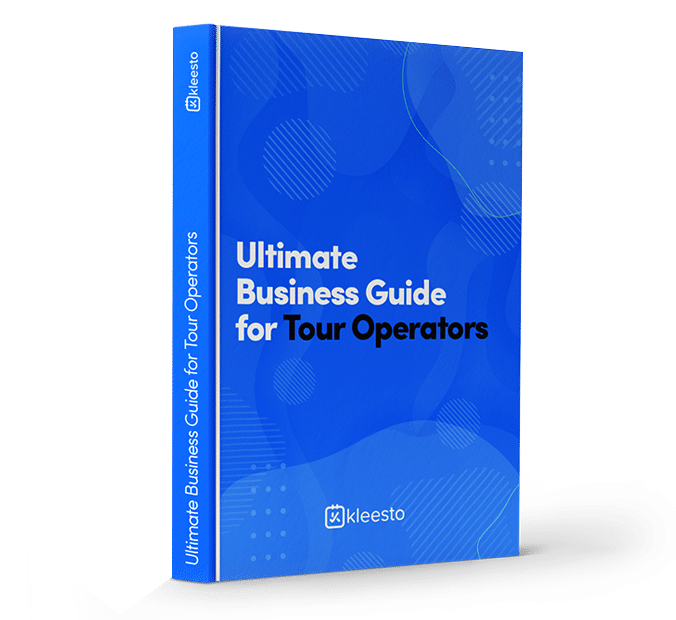How to Partner with Tour Operators: A Complete Guide to Building Profitable Travel Partnerships

Partnering with tour operators can dramatically expand your reach in the travel industry, providing access to established customer bases and proven distribution channels. Whether you’re offering accommodation, activities, transportation, or destination services, strategic partnerships with tour operators can become a cornerstone of your travel business success strategies. This comprehensive guide will walk you through the essential steps to identify, approach, and build lasting partnerships with tour operators in your market. This comprehensive guide will walk you through the essential steps to identify, approach, and build lasting partnerships with tour operators in your market. For aspiring travel professionals just starting out, learning how to become a travel agent from home can provide the foundation needed to eventually develop these valuable operator relationships.
Understanding Tour Operator Business Models and Needs
Before reaching out to potential partners, it’s crucial to understand how tour operators function and what drives their decision-making. Tour operators typically work on volume-based business models, purchasing services in bulk to create packaged experiences for their customers. They prioritize suppliers who can provide consistent quality, competitive pricing, and reliable service delivery.

Tour operators face unique challenges including seasonal demand fluctuations, price sensitivity from consumers, and the need to differentiate their offerings in a competitive market. Understanding these pain points helps you position your services as solutions rather than just another vendor option.
Researching and Identifying Potential Tour Operator Partners
Successful partnership development begins with thorough research to identify operators that align with your services and target market. Start by categorizing operators by their focus areas: adventure tours, cultural experiences, luxury travel, or budget-conscious packages.
Utilize industry resources such as travel trade shows, tourism board databases, and professional networks to compile a list of potential partners. Pay attention to operators who serve destinations similar to yours or whose customer demographics match your ideal clients. Social media platforms and company websites provide valuable insights into their marketing approach, customer reviews, and service standards.

Consider both large international operators and smaller, specialized companies. While major operators offer volume opportunities, niche operators might provide better margins and more personalized partnerships that enhance your travel website optimization efforts.
Crafting Your Initial Outreach Strategy
Your initial outreach sets the tone for the entire partnership relationship. Develop a personalized approach for each operator, demonstrating that you understand their specific needs and customer base. Research recent tour packages they’ve offered to identify where your services might enhance their offerings.
Create a concise but compelling introduction that highlights your unique value proposition. Focus on what makes your services stand out from competitors and how you can help solve specific challenges they face. Include concrete examples of successful partnerships or notable achievements that demonstrate your reliability and professionalism.

Timing your outreach is crucial. Contact operators during their planning seasons, typically 6-12 months before peak travel periods. This gives them sufficient time to incorporate your services into their upcoming packages and marketing materials.
Building Compelling Partnership Proposals
A well-structured partnership proposal should clearly articulate the mutual benefits of collaboration. Begin with a detailed description of your services, emphasizing aspects that directly benefit tour operators such as group discounts, flexible booking policies, and dedicated support.
Include specific pricing structures tailored for B2B relationships. Tour operators typically expect wholesale rates significantly lower than consumer prices. Structure your pricing to reward volume commitments while maintaining profitability. Consider implementing tiered pricing that incentivizes larger bookings or longer-term commitments.

Your proposal should address operational considerations such as booking procedures, payment terms, and cancellation policies. Tour operators value suppliers who make their jobs easier through streamlining operations and clear communication protocols.
Negotiating Terms and Partnership Agreements
Successful negotiation requires balancing competitive pricing with sustainable profitability. Be prepared to discuss commission structures, payment schedules, and performance expectations. Many tour operators prefer commission-based arrangements that align costs with actual bookings rather than upfront payments.
Establish clear performance metrics and expectations from the beginning. This includes service quality standards, response times for inquiries, and procedures for handling issues or changes. Document these agreements in formal contracts that protect both parties’ interests.

Consider implementing discount management systems that allow for flexible pricing based on booking volume, seasonality, or special promotions. This flexibility can be particularly attractive to tour operators managing diverse customer segments.
Operational Integration and Service Delivery
Smooth operational integration is essential for partnership success. Implement systems that facilitate easy booking and payment processing for your tour operator partners. Modern online payment solutions can streamline transactions and improve cash flow for both parties.
Establish clear communication channels and designate specific team members as points of contact for partner relationships. Tour operators need reliable, knowledgeable contacts who can quickly address questions, modifications, or issues that arise.

For service providers offering transportation, consider implementing specialized transfer booking systems that integrate seamlessly with tour operator reservation platforms. This technical integration reduces manual work and minimizes booking errors.
Develop robust booking management policies that clearly define deadlines, modification procedures, and quality assurance protocols. Consistent service delivery builds trust and encourages repeat business from tour operator partners.
Marketing Collaboration and Co-promotion Strategies
Leverage partnership opportunities for mutual marketing benefits. Collaborate with tour operators on content creation, featuring your services in their promotional materials while showcasing their packages on your platforms. This cross-promotion can significantly expand your market reach without additional advertising costs.

Develop joint special offers for travel services that create compelling value propositions for end customers. Limited-time promotions or exclusive packages available only through specific tour operators can drive booking volume and strengthen partnership bonds.
Share marketing resources and insights with partners. Your local market knowledge combined with their customer data can inform more effective campaigns. Consider collaborating on travel SEO strategies to improve online visibility for both businesses.
Measuring Success and Optimizing Partnerships
Establish key performance indicators (KPIs) to track partnership effectiveness. Monitor metrics such as booking volume, revenue per partnership, customer satisfaction scores, and repeat booking rates. Regular analysis of these metrics helps identify successful partnerships and areas needing improvement.

Schedule regular review meetings with key partners to discuss performance, address challenges, and explore growth opportunities. These conversations often reveal insights that can improve service delivery and identify new collaboration possibilities.
Implement feedback systems that capture input from both tour operator partners and their customers. This dual perspective provides comprehensive insights into service quality and partnership effectiveness. Use this feedback to continuously refine your offerings and strengthen relationships.
Consider expanding successful partnerships through exclusive arrangements, expanded service offerings, or geographic expansion. Strong partnerships often lead to introductions to other operators within their networks, creating additional growth opportunities.

Conclusion
Building successful partnerships with tour operators requires strategic planning, professional execution, and ongoing relationship management. By understanding operator needs, crafting compelling proposals, and delivering consistent value, you can develop partnerships that provide sustainable growth for your travel business. Focus on building long-term relationships rather than pursuing short-term gains, and remember that the best partnerships are those where both parties genuinely benefit from the collaboration. With proper planning and execution, tour operator partnerships can become a reliable foundation for expanding your market presence and increasing revenue in the competitive travel industry.







